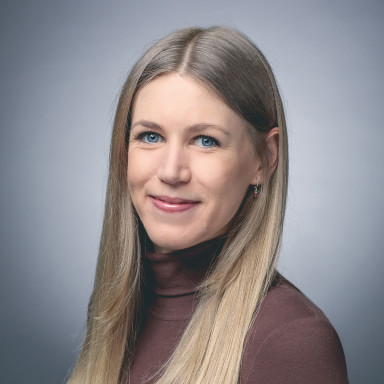- Mark Nichols and Mark Heslop took over the fund in October 2019, putting their own stamp on the portfolio
- Performance has since been good, delivered with relatively low levels of volatility
- The managers have also made progress building a European team to contribute to research and ideas
- This fund is not on our Wealth Shortlist of funds chosen by our analysts for their long-term performance potential
How it fits in a portfolio
Jupiter European invests in companies based across the European continent, and mainly invests in larger businesses. The fund could be considered for the base of the European part of a global investment portfolio focused on long-term growth, or be used to diversify funds focused on smaller businesses. A focus on companies with sustainable growth potential could make this a less volatile option in the European sector. That said, the fund is fairly concentrated with only 35 stocks, which means each one can have a more meaningful impact on performance, and this increases risk.
Manager
Mark Nichols and Mark Heslop joined Jupiter from Threadneedle last year, taking over management of Jupiter European in October 2019 from Alexander Darwall. The duo have many years’ experience of investing in European companies between them – Nichols with 19 and Heslop with 21 years.
Nichols ran his first fund at F&C from 2011 – the European Growth & Income Fund. He joined Threadneedle in 2015 and subsequently became co-manager of the European Select Fund, which currently features on the Wealth Shortlist, alongside David Dudding. We think he made a meaningful contribution to stock selection on this fund.
Heslop's background is in European smaller companies. He was also part of Threadneedle's European equities team for 11 years and was lead manager of the Threadneedle European Smaller Companies Fund from 2013. He began his investment career as an analyst at Citi in 1999. Heslop launched the Jupiter European Smaller Companies Fund in February 2020, in which Nichols also has input.
The managers have built a team of five since joining Jupiter. This includes Phil Macartney, a fund manager with 13 years’ experience across UK and European companies, Sohil Chotai, an assistant fund manager with 8 years’ experience in European companies, and Nikisha Mistry, who has 3 years’ experience as a European equities analyst. The managers have aimed to build a diverse team, with each member providing different ways of thinking. While Nichols and Heslop are the named managers on this fund, they view it as a team-based approach and encourage input from all team members.
Process
Nichols and Heslop look for quality companies with superior growth potential. They believe investors often underestimate the sustainability and competitiveness of some businesses, and aim to take advantage by holding on to these companies for the long term.
These companies might sustain their competitive advantage by having access to unique information, having a strong brand that customers remain loyal to, owning a large share of the market, or being highly innovative.
The managers invest in companies for the long term in order to benefit fully from any potential earnings growth, rather than trying to make short-term guesses and gains. This keeps buying and selling to a minimum, and trading costs low.
Since taking over the fund the managers have reduced the number of holdings, only focusing on their highest-conviction ideas that could contribute the most to performance. That said, the amount invested in each company is more evenly spread compared with the previous manager. This means they still have some high-conviction positions, but at slightly lower weightings, and they don’t want to have small investments in lots of stocks that don’t have much impact on performance.
This year, the managers have added investments in companies including DSV, a Danish transport company offering courier and warehouse services, Partners Group, a Swiss private equity investment firm that’s growing its market globally, and Temenos, which provides software mainly to smaller banks. They also bought Nexi, a payments solutions business. It mainly provides offline solutions, but operates in Italy where the trend is for cards to be used more. On the other hand, food ingredients business Chr Hansen and consumer goods giant Unilever were sold.
Culture
We think the culture at Jupiter is attractive. Fund managers are given autonomy to invest the way they see fit and believe will benefit investors over the long run, but with an appropriate level of challenge from others in the business. The business setup allows Nichols and Heslop to focus on fund management, their team, and maintain flexibility.
All fund managers at Jupiter receive support from the Sustainable Investing and Governance Research teams. Nichols and Heslop also form their own views on ESG (Environmental, Social and Governance) issues and incorporate them into their research, believing them to be important to the long-term quality of a business.
We think the managers are incentivised in a way that could maximise long-term performance, meaning their interests should be aligned with those of their investors. Part of their remuneration is based on short and longer-term performance, and they also hold Jupiter shares and invest in the funds they manage.
Cost
The ongoing charge for this fund is 0.99%. This makes it one of the more expensive funds in the Europe sector. The HL platform fee of up to 0.45% per year also applies.
Performance
The fund has delivered good performance so far under Nichols and Heslop’s management. Over this time (since October 2019) it’s outperformed its benchmark, the FTSE World Europe ex UK Index, by 7.9%*. It’s also been one of the least volatile funds in the Europe sector over this time, though this is over a very short timeframe and past performance isn’t a guide to future returns.
The managers’ focus on quality businesses with more sustainable characteristics means the fund has the potential to hold up better during weaker markets, which happened amid the coronavirus-related volatility in March this year.
It hasn’t quite kept pace with the market in more recent months though. This is partly due to a lack of internet-based businesses. Some other companies have also been impacted by the coronavirus, but the managers have held on to those they expect to come back stronger. This includes travel technology company Amadeus. While the managers were not surprised to see the company go through a tough patch due to the disruption in the travel industry, they are optimistic in their longer-term outlook. They think the business is in a stronger position than its competitors, and believe leisure travel will eventually come back strongly, though business travel may recover a bit slower.
Prior to taking over this fund we feel the managers built their own respectable track records. While Nichols focused more on larger companies, similar to this fund, Heslop took a lead on smaller businesses. We think this fund is a good option in the Europe sector and expect the managers to do well over the long run although there are no guarantees. That said, our current choices on the Wealth Shortlist have longer track records and have delivered impressive levels of outperformance. The team is also relatively new, and we would like to see how they get on and settle over a longer period.
| Annual percentage growth | |||||
|---|---|---|---|---|---|
| Oct 15 -
Oct 16 |
Oct 16 -
Oct 17 |
Oct 17 -
Oct 18 |
Oct 18 -
Oct 19 |
Oct 19 -
Oct 20 |
|
| Jupiter European | 11.9% | 26.7% | 8.1% | 7.1% | 5.3% |
| FTSE World Europe ex UK | 19.7% | 19.9% | -5.6% | 11.5% | -4.2% |
Past performance is not a guide to the future. Source: *Lipper IM to 31/10/2020.
Find out more about the Jupiter European, including charges
Jupiter European Key investor information
Want our latest research sent direct to your inbox?
Our expert research team provide regular updates on a wide range of funds.

